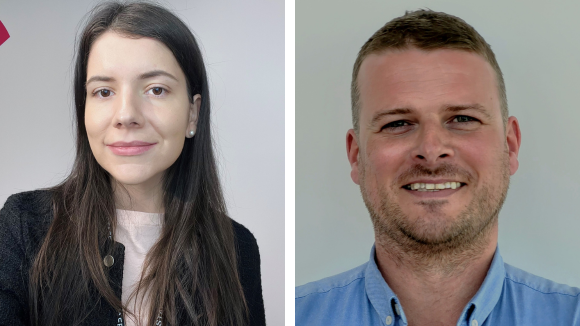
Liverpool School of Tropical Medicine is celebrating the invaluable contribution of its early career researchers.
As part of Postdoc Appreciation Week, LSTM is hosting a celebration social event and facilitating attendance at a CV workshop, as well as launching Prosper, a new programme for early career researcher career development.
Early career researchers will be provided with ‘appreciation cards’ from their LSTM colleagues, which feature touching testimonials championing the commitment of early career researchers and their contribution to LSTM’s work.
Professor Hilary Ranson, Dean of Research Culture and Integrity at LSTM, said: “Early career researchers are the backbone of LSTM. Through their talent, expertise, collaborations and hard work, they ensure that we deliver on the goals of our research projects, directly supporting LSTM’s mission.
“But they also contribute so much more to the research ecosystem, driving cultural change, educating peers and students, contributing to committees and working groups, securing funding and bringing innovation to all aspects of our work.
“Many of our early career researchers go on to become Research Group Leaders at LSTM or elsewhere, but many others build on their transferable skills learnt during their time here and apply these in other sectors, directly contributing to broader vision of healthy lives across the world.
“As signatories to the Concordat to Support the Career Development of Researchers, LSTM strives to provide a rewarding and inclusive environment in which our ECRs can thrive, whatever their chosen career path.”
Support
LSTM leads many initiatives to support the career development of researchers, including the new Prosper programme and Career Development of Researchers (CADRe) working group which oversees the implementation of the Concordat – an agreement to improve the employment and support for researchers in higher education in the UK.
‘Prosper in LSTM’ draws on a four-year pilot programme run by the University of Liverpool, supplemented by LSTM-run workshops, support and coaching. It will support a cohort of up to 16 LSTM staff who are thinking about their next career move.
Early career researchers
Early career researchers work across a variety of roles and specialisms, supporting LSTM’s vital research in improving global health.
Laura Rosu works within the Clinical Sciences department, specialising in within-trial economic evaluations, examining the cost effectiveness of intervention in diverse disease areas and helping to shape informed healthcare decisions.
She said: “At LSTM, I've had the privilege of collaborating with renowned researchers from around the globe, truly feeling like an integral part of the global research community. Here, at LSTM, I've consistently felt that my contributions are genuinely valued.”
Daire Cantillon is a postdoctoral scientist at LSTM, researching chronic bacterial infections, specifically those caused by mycobacteria.
He said: “I have always been interested in respiratory microbiology as I have cystic fibrosis in my family. I grew up seeing the infectious diseases challenges associated with this condition and it has definitely driven my passion for developing new interventions for bacterial infections.
“As an early career researcher, we can face some pretty big barriers to progressing in our careers such as obtaining grants as principal investigator or trying to understand how to navigate various aspects of academia. LSTM has been really supportive of me as I progress in my career, including opportunities to apply for funding such as the Director's Catalyst Fund which I was awarded this year. I will be investigating antimicrobial resistance and treatment failure in M. abscessus infection.
“Apart from funding opportunities, I have a great mentor in Dr Jenn Lord through our IGNITE scheme as well as more informal support through our ECR Network. While it is tough at times as an early career researcher, the various activities and opportunities throughout LSTM does make me feel like early career researchers are a valuable part of the academic community.”